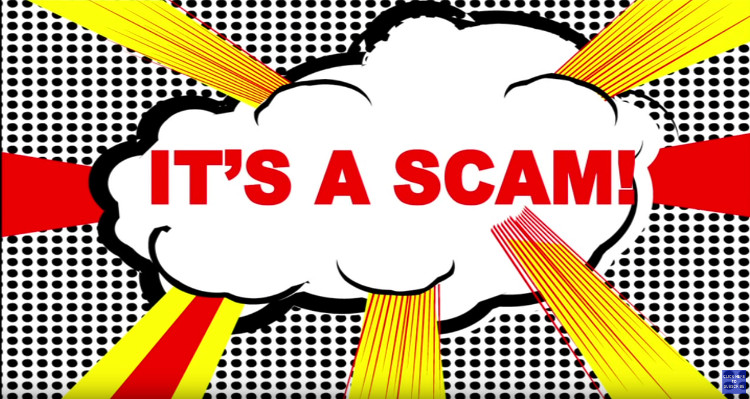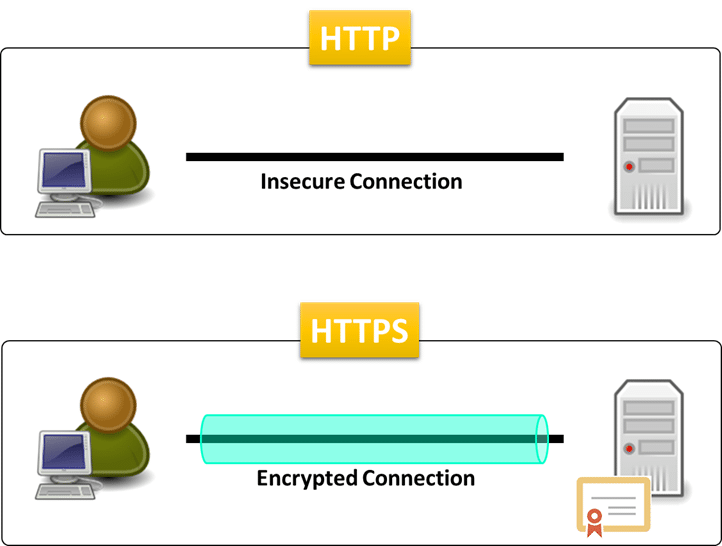Common Bitcoin Scams and How Can You Avoid Them?
With the price of Bitcoin steadily increasing over the past few years, it is safe to say that Bitcoin is a new type of currency that is not going anywhere soon. Despite many of the negative assumptions associated with the cryptocurrency, Bitcoin itself is not a scam. In fact, it is easily ranked as one of the best forms of currency currently available, and it is also a very stable investment when it is properly managed by the investor. Although not a scam itself, there are some people who have wanted to profit from the cryptocurrency in illegal and unethical ways.

Bitcoin's market price has skyrocketed into billions of dollars, and with this type of capitalization on the market, people from around the world have started to see just how appealing and valuable it really is. Unfortunately, this also brings out the bad aspects of human nature. In other words, there are scammers who are looking for ways to profit from Bitcoin, but through nefarious ways. As a result, this tarnishes the image of Bitcoin.
In this guide, I am going to walk you through some of the most common Bitcoin scams. I will also show the best ways to spot this type of scam so you will not become a scammer's next victim.
Bitcoin Exchanges
Although there are legitimate Bitcoin exchanges, I have come across links on social media that will say something similar to this, "Buy Bitcoin for 10% under the current market value. This is your chance to save!" Sadly, this is a new twist on an old marketing trick.
The scammer wants you to click the link and use their exchange. The problem is, the exchange is fake. Before you give any of your information on a website, it is important to make sure the webpage is secured. It should begin with HTTPS, and not HTTP.
A website with HTTPS means that all of the web traffic is secured and encrypted. On the other hand, if there is no 'S' on the end, this is a major red flag. Stay away from these types of websites.

You will also need to avoid any exchange that offers to sell BTC in order to get PayPal. With these sites, there will be a web form that will ask you to type in your PayPal information. Once you submit that information and the amount you want to sell, there will be a QR code so you can send your Bitcoin to it.
With this scam, the money never arrives into your account.
Cloud Mining
The next Bitcoin scam I want to talk about is cloud mining. These companies are considered scams based on the simple fact that they can just walk away with money and never pay out. In fact, these companies can tell someone like me they are a cloud mining company without having to provide proof that they actually own hardware.
This scam is prevalent in the cryptocurrency industry because it is fairly easy for someone to create a website claiming to be a cloud mining company.
The next thing they do is simply claim that they have a big mining facility. Once again, these are blanket statements without proof.
Some of these companies go as far as pretend they are legitimate by sending a few payments to the customers. However, after they send out these few payments, they stop and just keep the payments they have already received.
In addition, some of these cloud mining companies place viruses on computers, and then they use these computers to mine Bitcoins. So, if you believe that your computer may have come under attack, you will need to run a malware detector on your computer.
Trading Bots
Another Bitcoin scam I think you should be aware of is the trading bots scam. Some crypto users have been singing the praises of these types of bots because they have been able to help investors stay abreast of the latest trends, but I believe that these bots are manipulating prices by using methods that are considered illegal on regulated exchanges.
It is vital that crypto consumers are educated so they are aware of the differences, and that is why I am here. I want to educate new and potential Bitcoin investors about this type of scam.

Bad trading bots can be used by scammers so they can be involved in a illegal act known as 'wash trading.'
This type of bot is able to see both the buy orders and the sell orders being placed at the same time. The bot is then able to distort the actual activity levels of the market.
The practice known as wash trading is the type of behavior that places innocent traders like me and others in harm's way. There are some exchanges that are not as popular, and they may be participating in this type of strategy in order to improve their rankings.
The best advice I can give you is to avoid trading bots altogether. There are legitimate ways to make money with Bitcoin.
Bitconnect
My list would not be complete without mentioning Bitconnect. This lending platform abruptly closed its doors in 2018. Although this sudden exit from cryptocurrency may have come somewhat as a surprise for many, I saw the writing on the wall the entire time.
This company made its introduction into the cryptocurrency world in 2016 with an ICO (initial coin offering). This resulted in Bitconnect cementing its positions as one of the best performing currency platforms by 2017. Yes, I definitely remember that at its peak, Bitconnect bragged about its market cap of $2 billion and counting. The company also claimed to have a value way over the $400 million mark.
Despite this impressive growth, the platform became a magnet for many critics, including yours truly, who became very suspicious of the investment platform's business model. I, along with many others, vocally called out the company as being nothing more than a Ponzi scheme.

The first red flag I noticed was that the platform guaranteed that investors would earn up to 40 percent of their total return each month. The company closely followed a system based on the four-tier , and that was based on the total of the initial deposit. In other words, the more money an investor put down, the faster the larger profits could come in.
Regardless of the potential stakes, investors were guaranteed a one percent ROI each day. It was also around this time the company created its own trading bot software. It was this software that Bitconnect said could turn investments into fortunes virtually overnight. Or so, that was the information that I read on the website suggested.
So, what did this all mean? Well, let's say I decided to throw away $2,000 into a Bitconnect investment account. The company claimed I could possibly get more than $100 million within the first three years. That was assuming the daily return on investment lived up to its claims. It was not that difficult for me and many others to see that this type of investment model was certainly not sustainable.
To keep from making a long story even longer, I will say this. Despite the numerous red flags, vocal critics and even protestors, the company had a group of loyal investors that did not doubt anything the company told them.
During this same time, Bitconnect continued to aggressively market its brand around the world in an attempt to distract the naïve investors from what was really going on.
The bottom line, if an investment sounds too good to be true, it probably is.
MLM
I have always had an interest in exposing the most common marketing scam, known as MLM or Multi Level Marketing. Yes, I am well aware that using the terms 'MLM' and 'scam' in the same guide is quite incendiary. And that is my intention.
I will not make any apologies about any of Bitcoin scams or any other type of scam that is designed to take money away from hard working people looking for an investment or business opportunity. But, I truly believe that MLM is one of the biggest plagues that has ever been introduced to modern capitalism. Is Bitcoin a scam? Certainly not. Is MLM a scam? Yes, indeed.
No matter the new product that is being pushed, the formula remains the same with these types of scams. That is one reason why they are also called pyramid schemes.

Have you ever heard a MLM company say anything other than it is an amazing opportunity if you get in on ground floor? But, are the true results for the average investor amazing? Not in the least. These companies often fail to tell investors that even if they reach the upper tiers of the pyramid, the income level is not sustainable long term.
For example, if I were to ask you if you would be willing to purchase a Burger King franchise if the corporation told you that the chances of you making a living wage was less than 2%? I certainly hope you would not.
So, the bottom line is that MLMs are scams, pure and simple. They prey on people who have dreams of entrepreneurship while being naïve of the way multi-level marketing really works.
In Person Meetings
This Bitcoin scam is different from other scams I have mentioned in this guide because it takes the scam from strictly online, where people remain relatively anonymous, and brings it offline.
It may begin online where you are in a forum or chatroom with other investors who claim to be in your local area. They may convince you that they are looking to buy or sell Bitcoin and want to arrange a meeting.
Unless it is someone that I know personally, I would never agree to meet someone in this manner because it is a risky proposition. The potential for physical harm and injury will be there.
Another reason why I would avoid these types of transactions is because scammers have been known to exchange counterfeit fiat money for real Bitcoin with an unsuspecting person. The person does not realize the currency is fake until they attempt to spend it. By then, the scammer is long gone.
If you really want to buy and sell with another Bitcoin investor, consider using an escrow account on a peer-to-peer platform.
Fake Crypto Currency
I am here to tell you that if you have ever been told that you are too late to 'cash in' on the Bitcoin 'craze', and there is a better alternative out there, RUN because you are about to get scammed.
The first one that comes to my mind is My Big Coin. The con artists behind this scam were shut down for this exact reason.
They took over $5 million from investors so they could supposedly invest in a new cryptocurrency for them. Instead, they took the money and redirected it into their own banking accounts.

Old School Fraud With A Bitcoin Twist
If someone called you and told you that you owed taxes and claimed to be from the State Department of Revenue or the IRS, would you send money if they said they needed the money now?
You may be as surprised as I am to know that there are people still falling victim to this financial fraud. When the fraud first began, scammers wanted their victims to send the money through a type of prepaid debit card or Western Union. However, scammers are also using technology in their fraudulent activities.
These scammers are now asking their victims to send them Bitcoin to their wallets.
Fortunately, there is an easy way to avoid becoming a victim to this type of scam. Do like I do and simply ignore the calls, texts and emails. You can even go a step further and report these types of frauds to your local authorities.
Conclusion
With this guide, I have by no means detailed all of the different types of scams out there. From Bitcoin scams to the old MLM scam, fraudsters have a seemingly unlimited number of ways to try and con people out of their hard earned money. As always, it is important to always use common sense when considering potential investment deals.
However, Bitcoin, the cryptocurrency, is not a scam. Just like fiat money, when it is invested the right way, investors will see a positive ROI.

